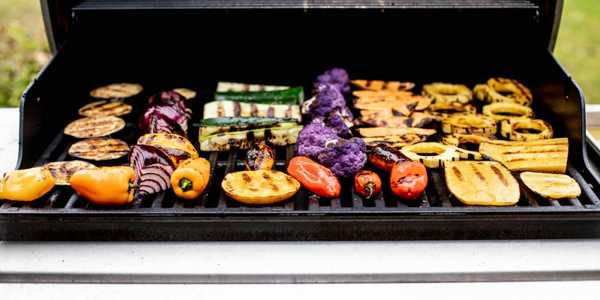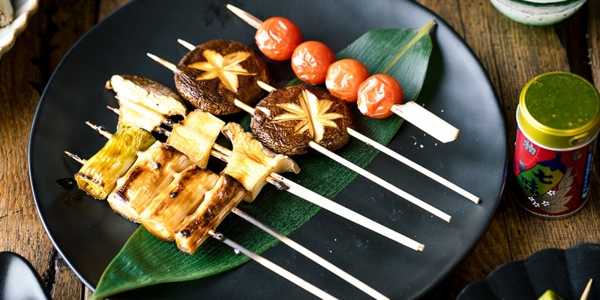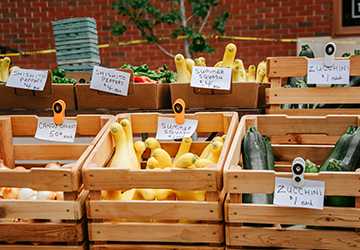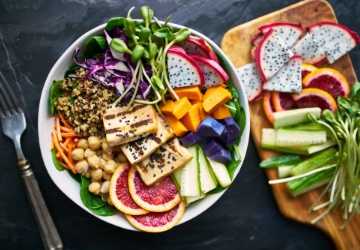How to Grill Vegetables: 6 Tips for Perfect Grilled Vegetables
Wondering how to maximize the flavor of your vegetables at that barbecue party you're planning? Grilling isn't just about meat!
Grilled vegetables also get a smoky flavor and grill marks. But how do you get them just right? Well, that's where we come in.
Here are six simple tips to help you grill your vegetables like a pro. All of the following tips are great for improving your vegetable grilling.
Whether you're wondering about choosing the right vegetables or shooting your vegetables the right way, you've come to the right place.
Grab your grill, pull out your favorite vegetables, and get ready to wow your friends and family with delicious, tender grilled vegetables.
Let's get started preparing for your next barbecue party!
Preparing Vegetables for the Grill

You'll need to prepare your grill for those delicious vegetables. Here's how:
Start Cleaning: If you're using the grill to cook food, clear any accumulated debris on the grill. This will prevent sticking and other weird flavors.
Apply Oil: Wipe over the grates using tongs and an oiled paper towel. Don't apply too much oil, as this can cause a fire.
Heat it right: For a gas grill, turn the burner knob to high. If using charcoal, distribute the hot coals.
Preheat it well: Cover the pot and let the cooker heat up for about 15 minutes. Aim for a temperature of around 260°C.
Check your tools: You should have a spatula, tongs, and perhaps a grill basket.
Safety first: Keep a spray bottle handy in case of an outbreak.
With these measures, your grill should be ready for the best vegetable grilling.
6 Tips for Perfect Grilled Vegetables
Are you ready to become a grilled vegetable master? The following six tips will revolutionize your grilling experience.
From soft, tender asparagus to starchy potatoes, you'll create delicious caramelized vegetables quickly. Now, let's explore the tips and tricks for the best-grilled vegetables.
1. Lightly Oil the Vegetables
You need to lightly oil the vegetables before placing them on the grill. This prevents sticking and allows the spices to stick to the bottom. Before grilling, place the vegetables in a shallow dish and marinate them with a little oil.
Be careful not to overcook; this can cause inflammation and make the vegetables greasy. A thin layer can achieve the desired cooked-through appearance without cleaning it up again.
2. Know the Correct Cooking Time to Avoid Burning
Nothing is more important than the right time when grilling vegetables. Potatoes and other vegetables take longer to cook than tomatoes.
The first step is briefly frying the vegetables over high heat to get grill marks. Then, to finish the process, place them on a less hot area of the grill.
This two-step process ensures that your vegetables are cooked and grilled on the outside, not burnt or raw.
3. For Small Pieces, Use Skewers or A Grilling Basket
Don't let small vegetables fall victim to the grill. Small pieces like cherry tomatoes, mushrooms, and other small pieces are held in place with skewers.
Cooking cut vegetables can be difficult; in this case, a grilling basket is your best friend. It allows heat and smoke to pass through while trapping the smoke.
No basket? No problem! An easy way to make one is to create a tray out of heavy-duty aluminum foil and use a small mound to create a border around the food.
4. Cut into Small Pieces for Faster Cooking
If you are a grilling enthusiast, you know how you prepare your vegetables will determine how you grill. Foods cut into small pieces take less time and brown well.
For example, if you are making a stew, you need to cut round vegetables such as onions or eggplants into thin, round pieces so that the vegetables have more surface area in contact with the heat source and cook faster.
For longer vegetables, you should cut zucchini into slices. This method cooks the food evenly and gives you those beautiful grill marks that people love to see on their food.
5. Try Cooking in Bags
Foil packages are so good for grilling because they can hold denser vegetables. All you need to do is place the seasoned vegetables on the foil, fold the foil, shape it into an envelope, and then place it on the grill.
The vegetables steam in the juices to soften and enhance their flavor. This method is great for root vegetables and doesn't require as much attention; so you can focus on the fun part of the festival.
6. Adjust the Cooking Method According to the Type Of Vegetable
Not all vegetables are equally suitable for grilling. Tender vegetables like asparagus and green beans do best over direct heat over high heat for a short time.
Tougher vegetables like carrots or potatoes should be pre-cooked before grilling. Medium-density vegetables like zucchini and peppers prefer to be cooked over medium-high heat with the lid closed.
Understanding the needs of your vegetables will ensure perfect cooking results every time.
Best Vegetables for Grilling

Not all vegetables are created equal when it comes to grilling. Some shine brightly over the rust, while others require more care. Let's see which vegetables are best for grilling.
Fast-Cooking Vegetables
These vegetables are great for grilling and cooking quickly:
Asparagus: Great for direct heat, cooked in about 5 minutes.
Peppers: Sliced or whole, they quickly develop a beautiful crust.
Zucchini: Sliced, cooks evenly with crisp grill marks.
Eggplant: Sliced or diced, they are great grilled.
Mushrooms: Whole or sliced, they soak up the smoky aroma.
Green beans: Use a grill basket to create these tasty treats.
Onions: Thick, chewy slices that are sweet when grilled.
Tough Vegetables That Need to Be Pre-Cooked
These vegetables require some preparation before grilling:
Potatoes: Pre-cook, then grill on the grill to crisp up the skin.
Carrots: Steam or boil, then grill for extra flavor.
Butternut squash: Precook them slightly to keep them soft throughout.
Sweet potatoes: As with regular potatoes, precooking them is good for them.
Brussels sprouts: Steaming them before grilling helps ensure even cooking.
Remember to cut your vegetables into similar sizes so they cook evenly. Don't be afraid to experiment; maybe you'll discover a new favorite grilled vegetable!
Conclusion
These six tips should prepare you for perfectly grilled vegetables at your next grill.
Now you know how to cook asparagus over high heat for a few minutes or potatoes for a little longer.
So, put down the grill and focus on the vegetables. It'll delight your friends and family with smoky flavor and perfectly grilled strips.
Who knows? Your grilled vegetables might just be the star of the next barbecue you attend. Have some fun grilling and enjoy these healthy, delicious grilled vegetables.
FAQ
Q: Can I grill frozen vegetables?
A: Vegetables should be thawed first. Frozen foods can be steamed instead of grilled. If you must use frozen foods, pat them dry and use a higher heat to remove excess moisture.
Q: How do I keep vegetables from sticking to the grill?
A: Clean the grates thoroughly and lightly oil them. Toss the vegetables in a little oil before grilling. Don't move it too quickly - let it form a crust first.
Q: What's the best oil to grill vegetables with?
A: Use an oil with a high smoke point, such as grapeseed oil, avocado oil, or light olive oil. These oils can handle high temperatures without burning, so your vegetables won't taste bitter.







